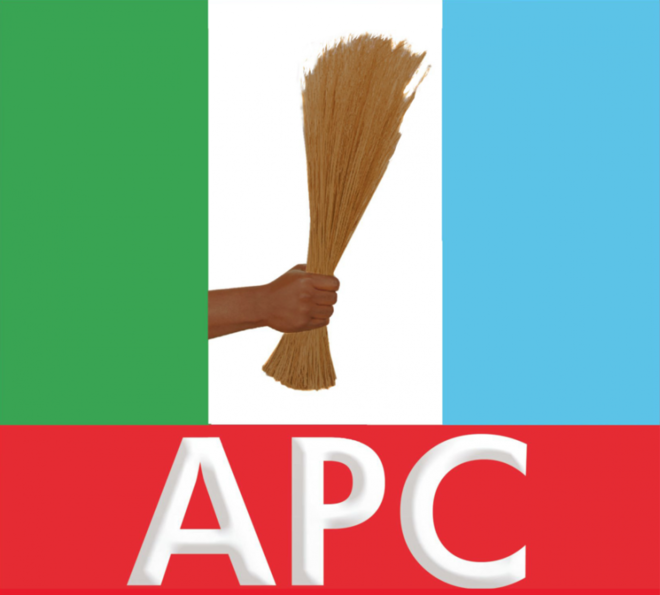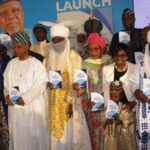Last week the nation had a glimpse of an unusual President Muhammadu Buhari.
He stirred after a characteristic, prolonged distance from serious problems to engage in a frenzy of consultations regarding his party, the All Progressives Congress(APC).
- Stop imposing wrong candidates on Nigerians, Bankole tells APC, PDP
- APC: Buni’s team of cohesion, harmony
Those who thought they were authorities on his character and style were left thinking they needed new drawing boards.
In the space of a few days, he made himself available for briefings on what needed to be done to, and about the APC, and committed himself to lines of action, which many others thought would just muddy poisoned waters.
Just when you thought he will stay true to his traditional worldview that allowing matters to rot, (provided they followed due process in the manner they rotted) was better than vigorous interference, which may create something new, the president threw his weight here and there, read riot acts, demanded for order from rampant chaos and stamped a rare authority.
For a while, the nation dared to hope that the new and improved president will have some energy and concern left to address national security the way he dealt with his party’s wounds. It was not to be.
It will be uncharitable to rain on the party’s parade, but presumptuous to assume that President Buhari’s historic foray through the destructive free-for-all into which his party had descended will be a solution that addresses multiple and deep-seated problems.
He had watched as the judiciary feasted on audacious and reckless ambitions that made a mockery of the party’s constitution and organs, and set new lows in standards of decency.
He welcomed combatants who had torn his party apart to the Villa, each leaving with a solid impression that the president has his back.
Then, he sat down to be persuaded that doing nothing may not hurt him personally at this stage, but allowing the party to disappear from under the feet of very powerful people who will be exposed to powerlessness after 2023 will be a major disaster for them.
It could even be a major source of inconvenience for an aging former president without immunity.
By this time, the party was in complete mess, and the only recourse of questionable value, the judiciary, was likely to continue to tie it up in knots until it had nowhere to go.
He had to intervene in a party that was so damaged that the intervention of a president whose distance was a major source of the damage was, under the circumstances, the only route left.
It was a manna, the type that falls to mediators when combatants are at a damaging deadlock, and all of them are looking for someone to separate a fight.
Major interests and combatants have lined up to support the president’s intervention because while it bestows some temporary advantages to some, it gave everyone some breathing space to re-group and resume hostilities.
For a while, almost every interest gains from the president’s opportunistic and rare intervention.
It would have been foolish, not to say impolitic, to denounce a truce that veteran and bullish politicians know is a strategic opportunity to re-arm and re-launch a battle that was born before its time.
Oshiomhole was effectively out of the picture, the price for staying too long at the top and forgetting that there is no top without a bottom.
Tinubu’s advanced political antennae worked well: he had mastered the art of reading Buhari, knowing when to give space and when to ask for favours.
He had lost many battles on his way to winning major wars.
This time he wore his most humbling garb to profess touching innocence and undying appreciation and loyalty to a man who had inadvertently either bailed him out of a difficult situation, or made the future a little more challenging.
Six months is a long time or a very brief moment in politics. It depends on how much work you have to do to reclaim lost ground or reinforce advantages.
It is unlikely the president’s party will see a repeat of the decisive outing when the president did what a responsible and disciplined party could have done on its own.
With over two years to go, the president may be conveniently removed from the growing rumbles of maneuvers over who should fly the party’s flag for the 2023 elections.
Still, if he was unaware that his intervention was to give the contending interests an opportunity to regroup, he really must be too far removed.
This in itself may not be something he will grieve over. President Buhari will be much happier having as little to do with who flies the party flag as possible.
This is in his character, and powerful people in his party know better than to wait for a firm nod in their direction from a president who has made ‘due process’ a very convenient excuse not to soil his boots.
In the next few weeks, hostilities will resume in the APC.
Not one member of the major factions has crossed over or yielded ground to the other.
The organisation of the national convention and the emergence of a new leadership will bear the brunt of impending battles the party has never witnessed.
Nigerians will be reminded that APC is new to contests for presidential flag bearers.
Buhari’s emergence as the party’s candidate in 2014 was a near-perfect marriage of a burning ambition to be president on his part, and a calculated gamble to build on a solid 12 million votes by Tinubu.
The party has remained pre-eminently a platform for the realization of personal ambitions since then.
In more honourable professions, you will expect that most interests will defer to Tinubu as the oldest second pillar whose hat is already in the ring.
Not in politics, and certainly not in APC whose seven years of existence had merely created the cult of the powerful leader, and nurtured people who will want to be that at all cost.
The next one year will be interesting for those fascinated by how systems collapse.
President Buhari and his party have lost massive support in its stronghold in the North.
He was its largest selling point, but now he will have little to offer to those who may need help to succeed him.
The party’s major opposition, the PDP, will also be torn apart by disputes over zoning and the liabilities of being out of power for eight years.
Tinubu will be vigorously challenged by ambitious northern politicians and young turks from his neck of the woods; his touted (and, to be frank, questionable) influence on politics in the West will be sorely tested.
Northern politicians hoping to wear Buhari’s shoes will find that they have shrank: the northern votes that gave him the presidency twice will be less willing to be cast without serious scrutiny.
Without Buhari and a solid record to show for eight years, many Nigerians will be looking for options to APC, and there will be more than a few politicians who may ask whether their ambitions are safer outside the party.
APC has a few weeks or months to launch into new damaging contests, and President Buhari will be leaking too much moral and political authority to stitch its gaping wounds.

 Join Daily Trust WhatsApp Community For Quick Access To News and Happenings Around You.
Join Daily Trust WhatsApp Community For Quick Access To News and Happenings Around You.


